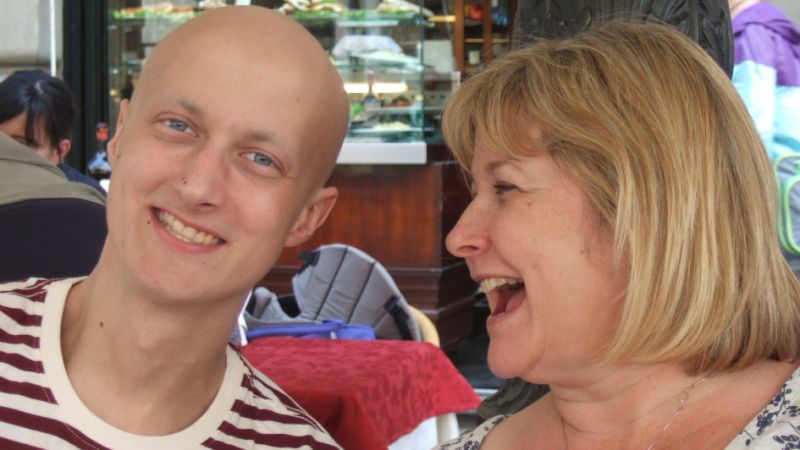The Institute of Cancer Research shared a post on Linkedin:
“We don’t ever want another mum or dad to sit there and hear that news. We’ve got to stop this. Nobody should ever have to go through that.”
At 18 years old, Tom Bowdidge was diagnosed with desmoplastic small round cell tumour (DSRCT) – an aggressive type of sarcoma. Despite undergoing a brutal and debilitating treatment regime, he passed away in 2013.
In the minutes before he died, Tom told his mum she would need to ‘crack on without him’ and continue his work. And that’s exactly what Tom’s family did.
Richard and Nikki Bowdidge launched the Tom Bowdidge Youth Cancer Foundation. The foundation has been incredibly successful, raising its first million pounds in February 2020.
The Tom Bowdidge Youth Cancer Foundation was created with Tom’s vision and mission to fill in the gaps of need for teenagers going through cancer. A vital part of the foundation was to invest in research into this hard-to-treat cancer.
The Foundation partnered with the ICR to support scientists led by Professor Janet Shipley, one of the world-leading specialists on research into soft tissue sarcomas. Her team focuses on finding more effective and kinder treatments that target the specific molecular defects that drive the growth of these deadly tumours.
Thank you to Richard, Nikki and the team at the Tom Bowdidge Youth Cancer Foundation for your incredible dedication and support in helping progress our research into sarcomas.
We are striving to improve the lives of people with all types of cancer – including those with the most challenging to treat. Please help us continue to make more discoveries, find more cures, and save more lives.”

